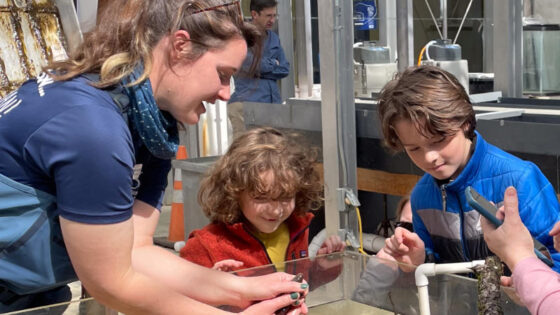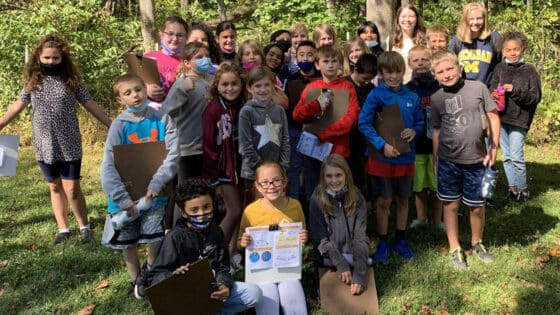Stroud Water Research Center and the White Clay Wild and Scenic River Program are introducing educators and students in Delaware’s Red Clay Consolidated School District to meaningful watershed education experiences.
The project began last winter and was funded by an Open Outdoors for Kids grant from the National Park Foundation. Teachers from seven of the district’s schools participated in professional development. Their training focused on increasing environmental literacy among students through hands-on experiences.
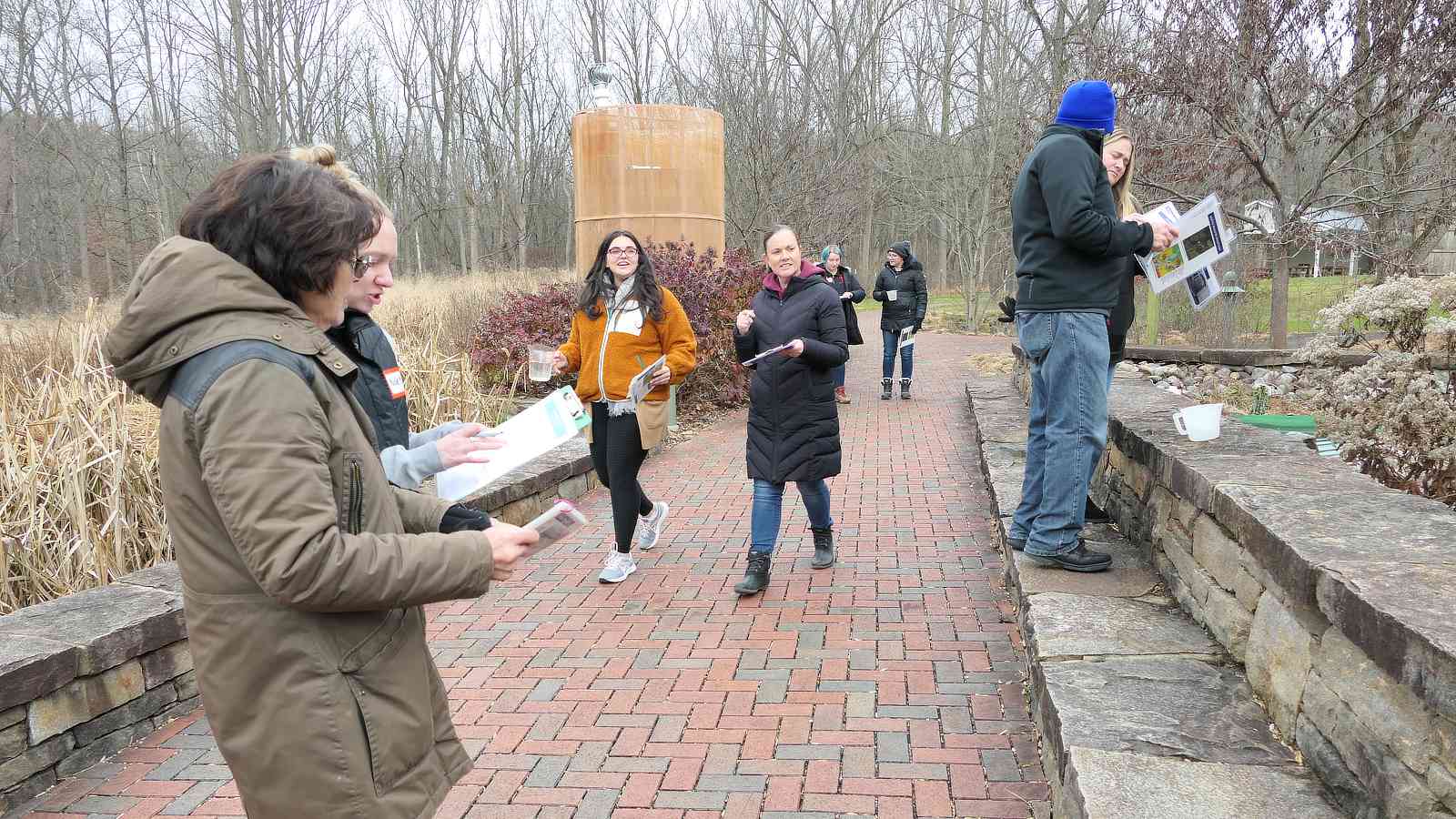
With Stroud Center educators, the teachers co-created three or four days of student-centered lessons that explore how land use affects stormwater runoff in the White Clay Creek Watershed. One lesson included a large-scale watershed model where students select a variety of land uses and discover the effects of their choices on stormwater. The professional development participants also created worksheets, a field notebook for student observations in English and Spanish, and a video introducing the lessons and field experiences.
The lessons, which the school educators and project partners are deploying this spring, engage nearly 600 fifth-graders from the seven schools in classroom work and outdoor field studies. The field studies occur at the students’ school campuses and the Stroud Center, and they incorporate geography standards like boundaries, land uses, and landforms.
Stroud Center educators lead the first two lessons — one at each school and one at the Stroud Center, where the students explore part of White Clay Creek. The national wild and scenic river is also where Stroud Center scientists conduct long-term research on stream health.
For the third lesson, the educators take what they’ve learned through the professional development experience and guide students in creating an action project on their school campus that raises awareness of local environmental issues and solutions.
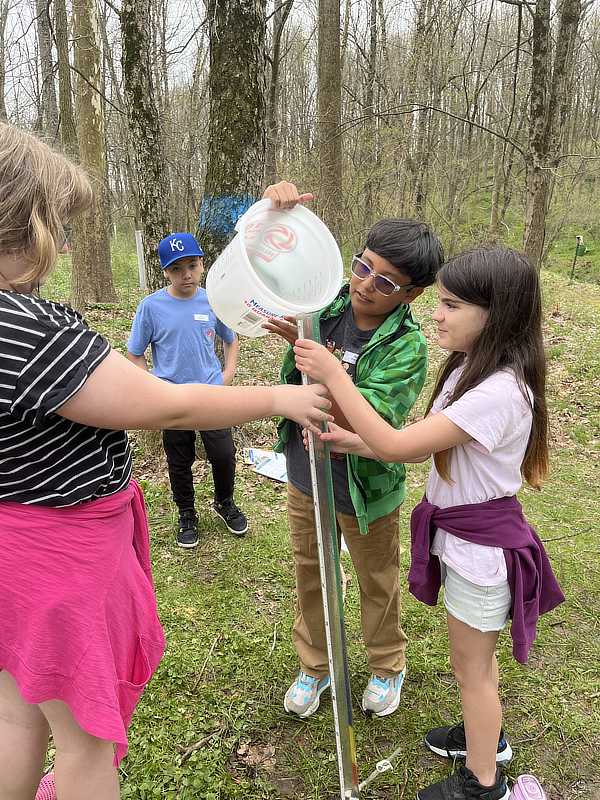
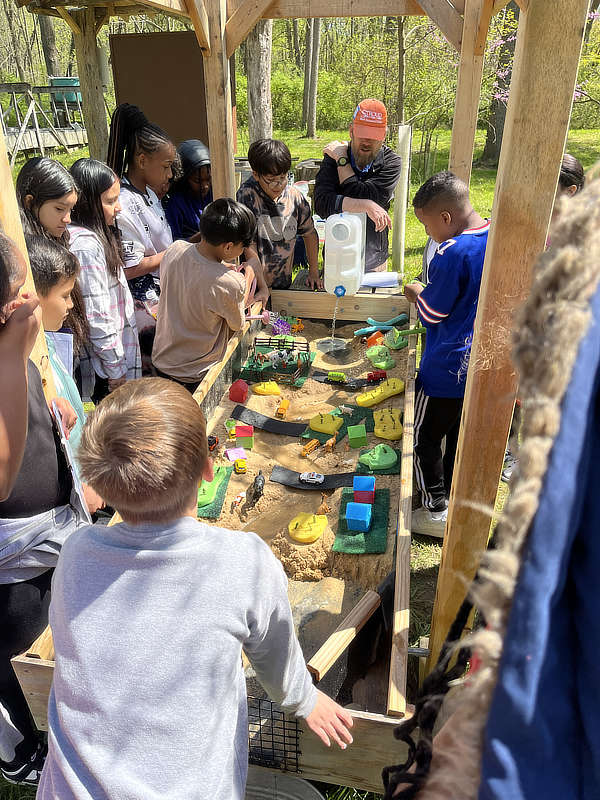
“This is an opportunity to empower school communities and families to take action to protect their local watersheds. We hope to reach all 14 elementary schools in the future and continue this wonderful partnership with the Red Clay Consolidated School District!” says Tara Muenz, the Stroud Center’s assistant director of education.
Interested in having Stroud Center educators work with your school or scout group?
Reach out to us on the Request a Program page.

